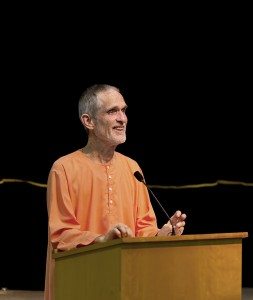 In North America, the Spring season will soon be behind us giving way to the Summer Solstice in June. Spring has long been a time of transition, when the dark and barren days of winter give way to light, warmth and new growth. Before summer is upon us, this month’s teaching involves the intention to make space for a fresh perspective and new ways of blooming. So, in this spirit, the tradition of Spring cleaning is something we continue to practice this month, as we move toward summer, and beyond.
In North America, the Spring season will soon be behind us giving way to the Summer Solstice in June. Spring has long been a time of transition, when the dark and barren days of winter give way to light, warmth and new growth. Before summer is upon us, this month’s teaching involves the intention to make space for a fresh perspective and new ways of blooming. So, in this spirit, the tradition of Spring cleaning is something we continue to practice this month, as we move toward summer, and beyond.
From a spiritual perspective, cleanliness applies to all levels of our being, from the environment that we inhabit and our physical bodies, to the inner recesses of our hearts and minds. Spring is an ideal time to de-clutter our homes and cleanse our bodies in preparation for the renewing energies of the season. Thus, Spring cleaning may mean ridding both our outer environment and our bodies of the unwanted accumulations of the past that encumber our lives and hinder our health.
Fasting is an excellent way to eliminate toxins that inhibit vitality and our potential to thrive. There are many ways of doing this to make it physically and emotionally suitable, each supporting the body’s natural ability to heal and grow. Even skipping an evening meal gives our systems a chance to cleanse themselves during the night.
Spring cleaning for our hearts and minds takes place on a much deeper level. Selfish thinking and behavior leave a psychic residue in the energy body that constricts the heart and diminishes our ability to experience love. Living with the anxiety of trying to make happiness happen, prove ourselves “worthy,” or win affection, makes for a stressful and dis-eased life.
In this deeper context, Spring cleaning means recommitting ourselves to practices that calm and quiet our overactive minds and attune us to a natural sense of inner peace. This kind of quieting can free us from grasping for happiness and, in the stillness this can bring, the heart has room to stretch out in all directions, revealing our connection to all of life. Thus, a regular practice of meditation enables us to realign with our spiritual values, and to let those values inform our motives and guide our actions.
For example, instead of trying to win someone’s love or acquire happiness, we can experience great fulfillment from giving and serving others with compassion. We can practice forgiveness toward those who may have harmed us, releasing from our hearts the poisonous feelings of ill-will or bitterness that may otherwise dwell there. We can experience extraordinary moments of wonder by being fully present to the miracles of human life, and profound gratitude for the many blessings we normally take for granted.
All of these efforts contribute to shedding the physical, emotional, and mental weight that can unnecessarily burden us. With this intention, we can cultivate awareness of the habits and thought patterns that no longer serve us, and make a conscious choice to release them, opening the door to new ways of living that bring greater peace to the mind and joy to the heart.
About the Author:
 Swami Ramananda is the Executive Director of Integral Yoga Institute in San Francisco, a certified Yoga therapist, and a founding board member of the Yoga Alliance. He leads beginner, intermediate and advanced-level Yoga teacher training programs in San Francisco and teaches throughout the world. Having dedicated his life to teaching Yoga for nearly 50 years, Swami Ramananda is highly-respected senior teacher in the Integral Yoga tradition in Yoga communities worldwide. Swami Ramananda co-developed the Stress Management Teacher Training program with Swami Vidyananda, has trained many teachers to bring Yoga into corporate, hospital and medical settings, and has taught mind/body wellness programs throughout the US and abroad. He is also a co-founder of The Spiritual Action Initiative (SAI) which brings together individuals committed to working for social justice for all beings and for the care and healing of our natural world.
Swami Ramananda is the Executive Director of Integral Yoga Institute in San Francisco, a certified Yoga therapist, and a founding board member of the Yoga Alliance. He leads beginner, intermediate and advanced-level Yoga teacher training programs in San Francisco and teaches throughout the world. Having dedicated his life to teaching Yoga for nearly 50 years, Swami Ramananda is highly-respected senior teacher in the Integral Yoga tradition in Yoga communities worldwide. Swami Ramananda co-developed the Stress Management Teacher Training program with Swami Vidyananda, has trained many teachers to bring Yoga into corporate, hospital and medical settings, and has taught mind/body wellness programs throughout the US and abroad. He is also a co-founder of The Spiritual Action Initiative (SAI) which brings together individuals committed to working for social justice for all beings and for the care and healing of our natural world.

